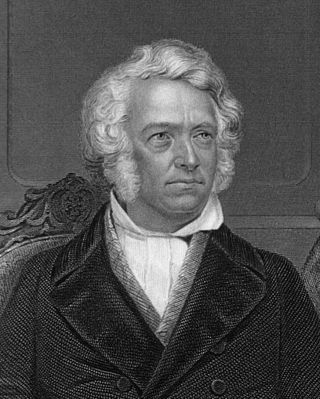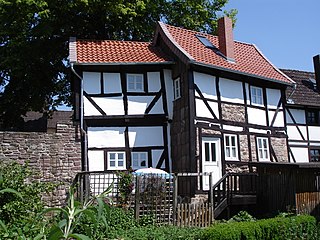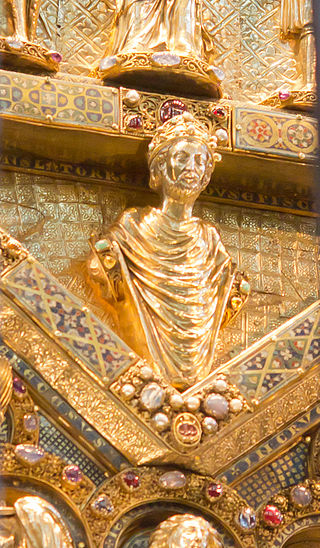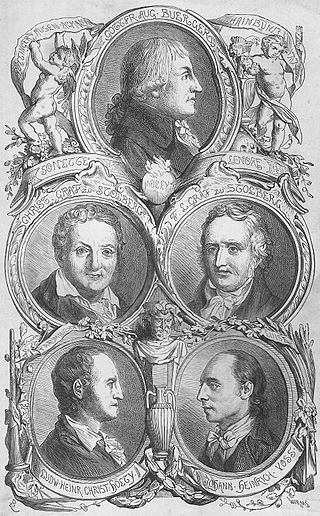
Alexander von Dassel (1 December 1854 - 28 October 1942) was a German privy councilor and magistrate (Geheimer Justizrat and Amtsgerichtsrat).

Alexander von Dassel (1 December 1854 - 28 October 1942) was a German privy councilor and magistrate (Geheimer Justizrat and Amtsgerichtsrat).
Alexander von Dassel was born in Lemförde as a son of Alexander von Dassel sen. (12 February 1817 in Lüneburg - 18 Juli 1911 Lüchow) and his wife Bertha von Dassel (9 January 1817 in Hoppensen - 13 March 1883 in Lüchow). [1] He studied in Leipzig and Tübingen and became a corps student of Corps Misnia Leipzig and Corps Suevia Tübingen. [2]
He married on 30 March 1894 in the age of 30 years the eight years younger Helene Busch (28 March 1862 in Bleckede - 13 January 1947 in Göttingen). [1] He died in Göttingen.

Christian Gottlob Heyne was a German classical scholar and archaeologist as well as long-time director of the Göttingen State and University Library. He was a member of the Göttingen School of History.

Johann Gottfried Eichhorn was a German Protestant theologian of the Enlightenment and an early orientalist. He was a member of the Göttingen School of History.

Georg Heinrich August Ewald was a German orientalist, Protestant theologian, and Biblical exegete. He studied at the University of Göttingen. In 1827 he became extraordinary professor there, in 1831 ordinary professor of theology, and in 1835 professor of oriental languages. In 1837, as a member of the Göttingen Seven, he lost his position at Göttingen on account of his protest against King Ernst August's abrogation of the liberal constitution, and became professor of theology at the University of Tübingen. In 1848, he returned to his old position at Göttingen. When Hanover was annexed by Prussia in 1866, Ewald became a defender of the rights of the ex-king. Among his chief works are: Complete Course on the Hebrew Language, The Poetical Books of the Old Testament, History of the People of Israel, and Antiquities of the People of Israel. Ewald represented the city of Hanover as a member of the Guelph faction in the North German and German Diets.

Karl Otfried Müller was a German professor, scholar of classical Greek studies and philodorian.

Leopold Gmelin was a German chemist. Gmelin was a professor at the University of Heidelberg. He worked on the red prussiate and created Gmelin's test, and wrote his Handbook of Chemistry, which over successive editions became a standard reference work still in use.

Dassel is a town in southern Lower Saxony, Germany, located in the district Northeim. It is located near the hills of the Solling mountains.
Adolf Bernhard Philipp Reinach was a German philosopher, phenomenologist and law theorist.

Rainald of Dassel was Archbishop of Cologne and Archchancellor of Italy from 1159 until his death. A close advisor to the Hohenstaufen emperor Frederick Barbarossa, he had an important influence on Imperial politics, mainly in the Italian conflict of Guelphs and Ghibellines.

Wilhelm Friedrich Philipp Pfeffer was a German botanist and plant physiologist born in Grebenstein.
Conrad of Wittelsbach was the Archbishop of Mainz and Archchancellor of Germany from 20 June 1161 to 1165 and again from 1183 to his death. He was also a cardinal of the Roman Catholic Church.

Karl-Friedrich Bonhoeffer was a German chemist.

Otto Hirschfeld was a German epigraphist and professor of ancient history who was a native of Königsberg.

Ludwig Timotheus Spittler was a German historian born in Stuttgart. He published works on national, church and political history. He was a member of the Göttingen School of History.

Hermann Brockhaus was a German Orientalist born in Amsterdam. He was a leading authority on Sanskrit and Persian languages. He was the son of publisher Friedrich Arnold Brockhaus and brother-in-law to composer Richard Wagner. In 1870 he received a combined medal (together with in occasion of the 25th anniversary of the DMG.

The Göttinger Hainbund was a German literary group in the late 18th century, nature-loving and classified as part of the Sturm und Drang movement.

Eric I, the Elder was Duke of Brunswick-Lüneburg from 1495 and the first reigning prince of Calenberg-Göttingen.

Heinz Heinrich Schaeder was a German Orientalist and Iranologist.

Rudolf August Johann Ludwig Wilhelm Berlin, also known as Rudolph Berlin, was a German ophthalmologist.
Georg von Dadelsen was a German musicologist, who taught at the University of Hamburg and the University of Tübingen. He focused on Johann Sebastian Bach, his family and his environment, and the chronology of his works. As director of the Johann Sebastian Bach Institute in Göttingen, he influenced the Neue Bach-Ausgabe (NBA), the second complete edition of Bach's works.